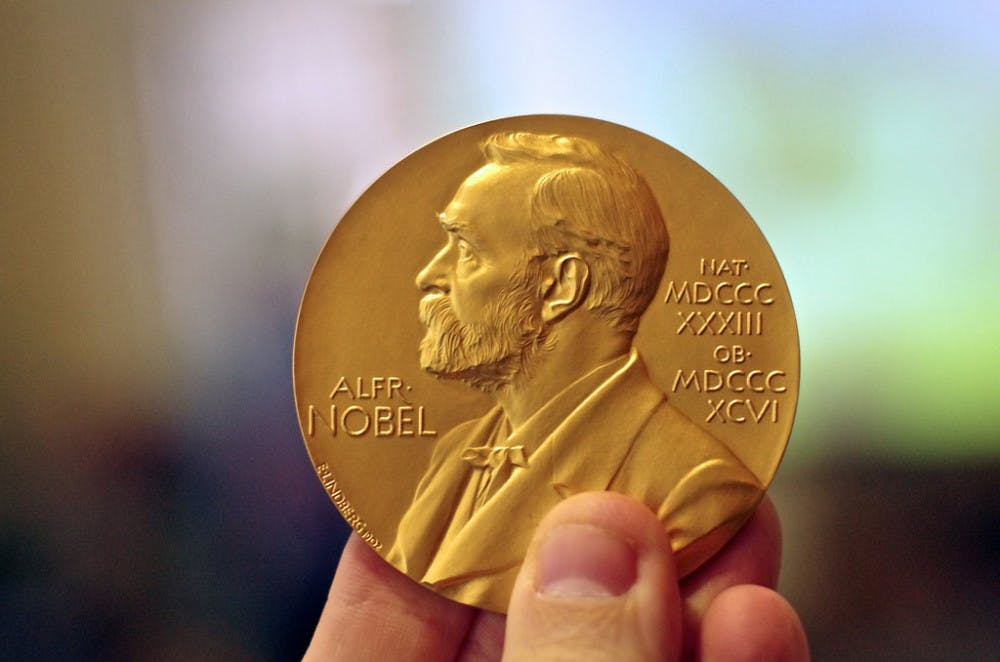Since 1901, Nobel Prizes have been awarded nearly every year in the categories of Physics, Chemistry, Physiology or Medicine, Literature, Peace and Economic Studies. The decisions, announced in Stockholm, Sweden (except for the Peace Prize, which is announced from Oslo, Norway), are always eagerly awaited by the international community. Though the ceremony is not held until December 10, the selections for this year’s prizes were announced this past week.
Physics
Who: This year’s prize was jointly awarded to three American physicists – Rainer Weiss, Barry C. Barish and Kip S. Thorne.
Why: For work on the Laser Interferometer Gravitational-Wave Observatory (LIGO) and further work on the observation of gravitational waves, which were originally predicted by Albert Einstein.
So What?: Gravitational waves let us learn more about the universe around us, giving us a way to examine black holes and other anomalies.
Chemistry
Who: This year’s prize was jointly awarded to three biophysicists – Jacques Dubochet of Switzerland, Joachim Frank, a German-born U.S. citizen, and Richard Henderson of Scotland.
Why: For the creation of cryo-electron microscopy, a method that enables the viewing of proteins and other atomic-level structures of molecules.
So What?: It gives a clearer picture of cell structures and the proteins within; higher-resolution images allow for better identification.
Physiology or Medicine
Who: This year’s prize was jointly awarded to three American scientists – Jeffrey C. Hall, Michael Rosbash and Michael W. Young.
Why: For their work in isolating the genetic reasoning behind the circadian rhythm, or the so-called ‘biological clock.’
So What?: All of our bodily processes rely on rhythms, and learning more about them can help us better deal with disruptions, such as the disorientation that comes with jet lag.
Literature
Who: This year's prize was awarded to Kazuo Ishiguro, a Japanese-born British citizen.
Why: For novels that reveal “our illusory sense of connection with the world,” according to the official press release.
So What?: His work, which spans different genres and settings, is full of subtext that addresses different human experiences, like the fragility of memory.
Peace
Who: This year's prize was awarded to the International Campaign to Abolish Nuclear Weapons (ICAN).
Why: For its efforts to share the dangerous nature of nuclear weapons and its attempts to “achieve a treaty-based prohibition of such weapons", according to the official press release.
So What?: In an environment of rising tensions between nuclear-capable nations, the fact that a Nobel Peace Prize was awarded to an anti-nuclear organization is a powerful statement about the danger posed by such weapons.
Economic Sciences
Who: This year's prize was awarded to Richard H. Thaler of the United States.
Why: For his study on the behavior that affects economic decisions.
So What?: Thaler is known for his work in the humanity of economics and the reminder that models and decisions must take human nature into account.





